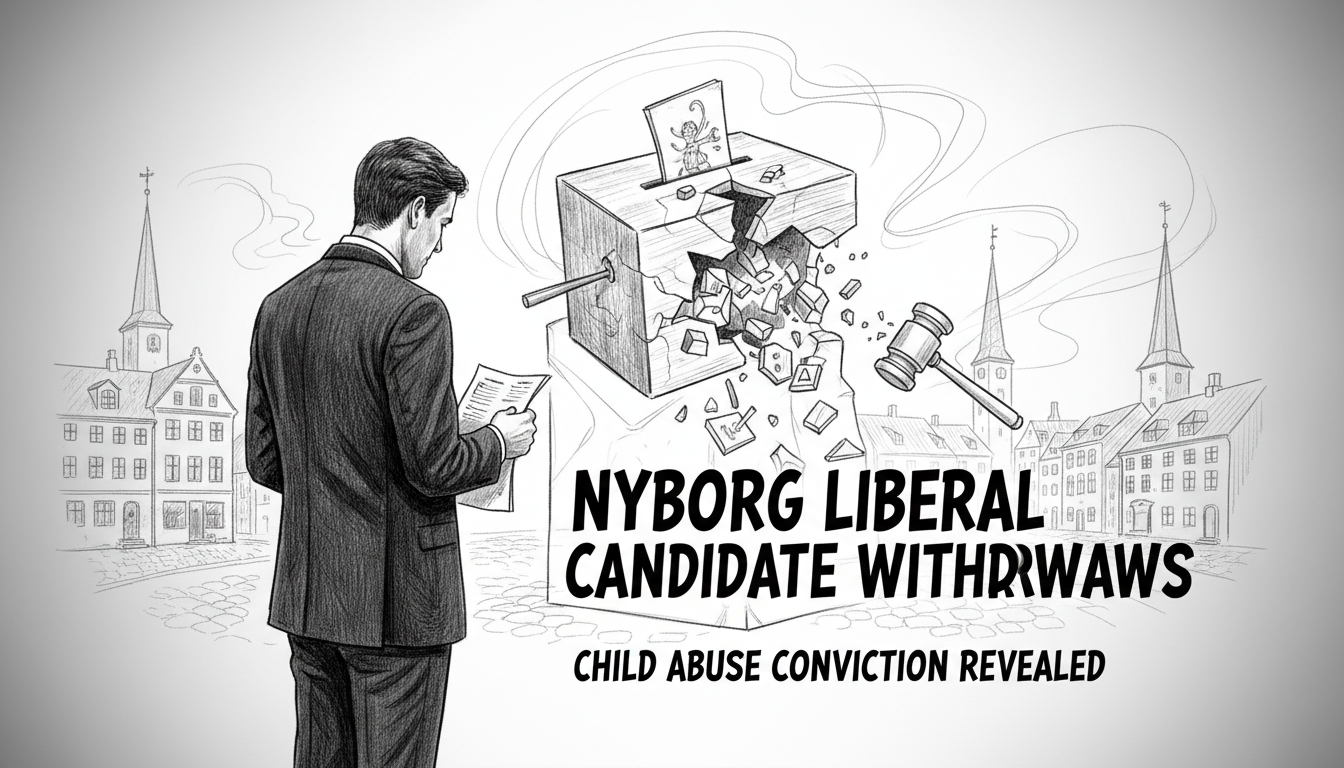A Liberal Party candidate in Nyborg Municipality has withdrawn from the local election after media uncovered his previous conviction for sexual abuse of a minor. Jesper Kaaslev Juul Lunde ended his campaign following revelations about his 2016 criminal case.
The candidate received an eighteen-month prison sentence for sexually abusing a thirteen-year-old boy. The offense occurred when Lunde was seventeen years old. At the time of the crime, he used the name Jesper Hansen. The victim was part of the same foster family where Lunde resided.
Local elections in Denmark occur on November 18. The Liberal Party now faces questions about its candidate vetting process. Political parties typically conduct background checks on prospective candidates. This case raises concerns about whether proper screening occurred.
Lunde announced his withdrawal through a Facebook post late Friday. He wrote that he had tried to put the matter behind him. The candidate acknowledged that the case would overshadow his election campaign. He wished his competitors well in the final stretch before voting.
Danish law treats sexual abuse cases involving minors with particular seriousness. The legal system allows for publication of offender information in certain circumstances. This case involves both criminal justice and political accountability questions.
The conviction came from the Eastern High Court in 2016. Court documents confirm the details of the case. Lunde served his full sentence without conditions.
Media attempted to contact Lunde for comment about several unresolved questions. Reporters wanted to ask about his current view of the conviction. They sought to understand whether he regrets his actions. Questions also remained about whether he informed the Liberal Party about his criminal record. The name change following his conviction raised additional concerns.
The victim in the case has spoken with journalists about the impact of the abuse. Their statements highlight the lasting consequences of such crimes.
This situation presents challenges for the Liberal Party in Nyborg. Voters now face a changed political landscape weeks before the election. The party must quickly find a replacement candidate while addressing questions about its selection process.
Danish politics has seen similar cases where past criminal convictions surface during campaigns. These situations test party mechanisms for candidate evaluation. They also raise public discussion about rehabilitation versus political responsibility.
The case highlights broader questions about transparency in political candidacies. Voters expect thorough vetting of those seeking public office. Political parties bear responsibility for ensuring candidates meet ethical standards.
Local elections in Denmark determine municipal council representation. These councils handle important local services including schools, elderly care, and infrastructure. Voters choose representatives who make decisions affecting daily life in communities like Nyborg.

